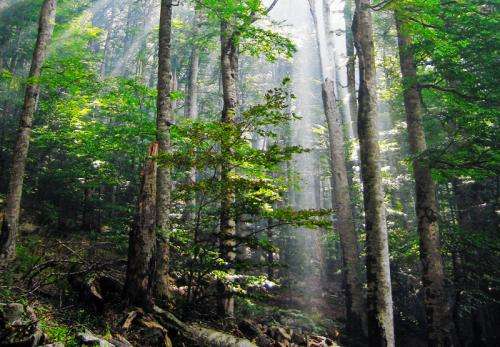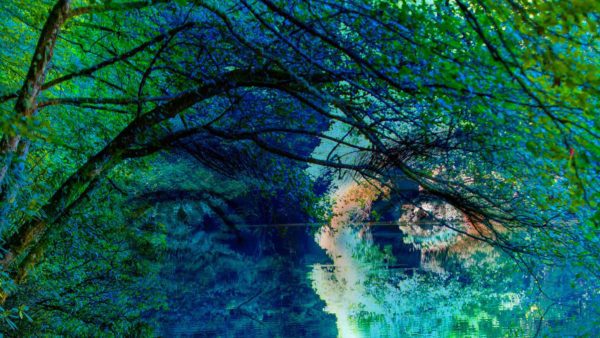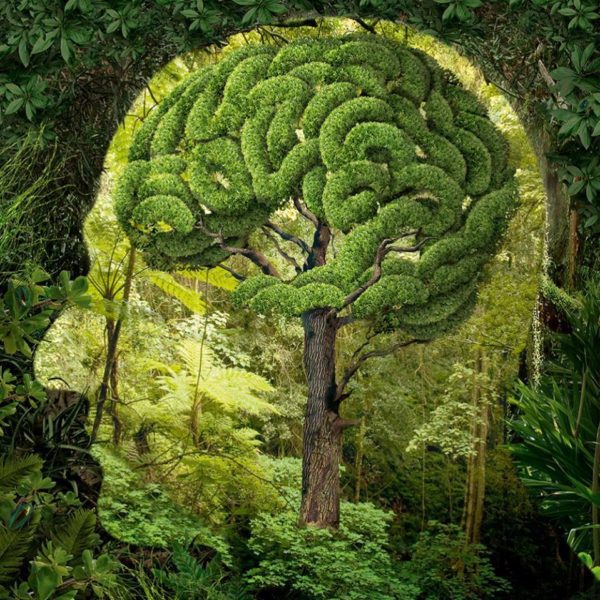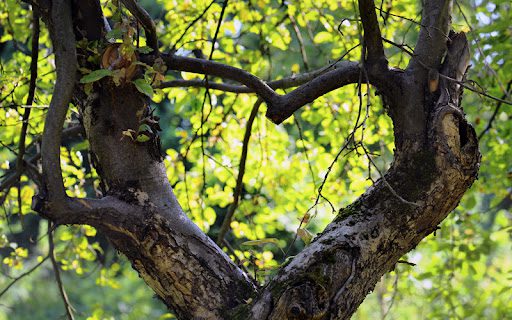 by Joanna Van Der Hoeven
by Joanna Van Der Hoeven
In a recent article published in Paganism 101 – An Introduction to Paganism by 101 Pagans, Emma Restall Orr wrote about Pagan ethics, and how they can be achieved and viable through a religion that has no single central authority or god figure.
Using nature as the inspiration for ethics, Pagans are able to pick and choose not only within their various traditions, but also within their own environments; those environments that they currently work and live in and, therefore, hopefully understand and commune with on a deep level. This can create a relativism that may not work for the broad spectrum that is Paganism, however, Restall-Orr uses the notion of pantheism to help sort out that issue; essentially, for something to be ethical, it should be for the good of all, not just the one, or the single environment.
Such an ethical code is in part relativistic, requiring that each decision be made with a comprehensive and wakeful acknowledgement of the immediate context, with all its layers of ecosystems and interwoven relationships. However, its code also requires deference to the fact that every aspect of that context is essentially rooted deep within the totality of nature, and the effect of that moment’s decision will shimmer through every part of the whole.
Yet such an understanding only goes so far. Where the practice of Paganism is truly ethical, it is because the experience of that divine wholeness is also present, flowing into the teachings together with an understanding of will, and influencing each decision with the wisdom of selfless responsibility. Emma Restall Orr, Paganism 101, Moon Books 2013. It is so simple a way to define a person’s ethics – yet why do so many people, including Pagans, seem to struggle with this concept in their daily lives?
It is so simple a way to define a person’s ethics – yet why do so many people, including Pagans, seem to struggle with this concept in their daily lives?
It requires a profound sense of selflessness to live in such a way. Paganism, New Age, Self-Help and modern psychology are so focused on the self, and the betterment or improvement of the self, that all else can easily fall by the wayside. This is reinforced by a constant barrage of marketing contradictions, wherein we are either being told that we’re not good enough(and require their product in order to be good enough) or that we deserve it (whatever it is that they are selling). In order to work on principles that work for the good of the entire world, we have to step beyond the bounds of our own egos, our own little worlds created in our minds and also those of our physical environments in order to truly walk our talk.
It’s not easy. The ego exists to ensure its own existence. It hollers and chatters away inside our minds, making much of its importance to our unique perception of our self. Without it, it says, we lose our identity, and especially as Pagans, that identity is what sets us apart from the crowd. This voice is also the voice that makes us feel better about ourselves in comparison to those of other faiths (other Pagan paths included). It is also the root of self-importance and ego-based power plays, both within the Pagan community and the wider web of being. It constantly screams for attention: from the media, from other Pagans, from anyone who will listen and justify this self-importance (yes, I do see the irony of this in a written article – please bear with me).
Yet we are only human. We make mistakes. We learn about how to deal with this voice within our minds, should we choose to through careful consideration and making changes to our lifestyle. We will never be 100% über-Pagan, but we can change little things in order to slowly drop away the ego and work towards integration, taking into consideration the whole rather than our selves. For instance, when was the last time you did something in return for nothing? Something for your community, whichever one that may be, without the expectation of a reward, a thank you, an acknowledgement of some kind? We are so used to being given something for something in our modern capitalist society that we simply expect it now as par for the course. We join an organisation not only because we believe in its values, but because we’ll get something from it – take RSPB membership. Not only will you help save wildlife, but if you join before August 31 2014 you’ll get a free book, “Handbook of Garden Wildlife”. Woodland Trust membership right now includes a free tree dedication. Most Pagan organisations will have a magazine or newsletter for members at the very least. We’ve become so used to a capitalist society that we are always expecting something in return for hard work or monetary funding. Very few organisations can exist now without offering something for members. It is a sad commentary on how we live in today’s world, in my opinion.
For instance, when was the last time you did something in return for nothing? Something for your community, whichever one that may be, without the expectation of a reward, a thank you, an acknowledgement of some kind? We are so used to being given something for something in our modern capitalist society that we simply expect it now as par for the course. We join an organisation not only because we believe in its values, but because we’ll get something from it – take RSPB membership. Not only will you help save wildlife, but if you join before August 31 2014 you’ll get a free book, “Handbook of Garden Wildlife”. Woodland Trust membership right now includes a free tree dedication. Most Pagan organisations will have a magazine or newsletter for members at the very least. We’ve become so used to a capitalist society that we are always expecting something in return for hard work or monetary funding. Very few organisations can exist now without offering something for members. It is a sad commentary on how we live in today’s world, in my opinion.
At this time of year, when the first harvests are coming in, is a great time to give back in whatever way you can to your local environment, the community or the world at large. We are blessed with food on our plates and roofs over our heads, things which many other humans are not. We are not being shot at or suffering greatly in any similar way in the modern Western world, for the most part. What can we give back for all that we have received?
Yet it isn’t just a case of giving back – we must completely change our lifestyle in order to ensure that giving back is done regularly, and not just as and when we feel like it. In this sense, a modern concept of sacrifice comes into play, where we sacrifice our time, our ways of being, our comfort in order to benefit the whole. This is not altruism in any sense – it is simply the most ethical way we can exist on this planet for much longer. I am vegan not because I will be healthier in my own self. I did not spend my savings on solar-panels for the roof because of any paltry return on investment. I do not recycle because it will make me a good Pagan. I do not clean up litter in my village because of any personal reward or recognition. I do not write letters to MP’s to justify my own self-importance. None of these things are done for my self – they are done with the entirety of existence at the very core of the action, thinking of the future ancestors, whether animal, vegetable or mineral. This does not give me a sense of pride or self-righteousness. It is difficult to consider every action in regards to the whole. It’s not an easy life – many sacrifices have been and will continue to be made. There are much easier ways to live that would provide much more personal gratification. And therein lies the greatest of the First World problems.
I am vegan not because I will be healthier in my own self. I did not spend my savings on solar-panels for the roof because of any paltry return on investment. I do not recycle because it will make me a good Pagan. I do not clean up litter in my village because of any personal reward or recognition. I do not write letters to MP’s to justify my own self-importance. None of these things are done for my self – they are done with the entirety of existence at the very core of the action, thinking of the future ancestors, whether animal, vegetable or mineral. This does not give me a sense of pride or self-righteousness. It is difficult to consider every action in regards to the whole. It’s not an easy life – many sacrifices have been and will continue to be made. There are much easier ways to live that would provide much more personal gratification. And therein lies the greatest of the First World problems.
As Pagans, we need to step beyond the boundaries of our self. We can use the self as a starting point and then work towards a life in service to that which most inspires us – nature itself. The gods are not there to inspire us to become better people but to show us that there is much more beyond our own self – we need to drop that sense of need, that desire for recognition and simply live in a way that would benefit the whole of existence. To quote Shakespeare: “There are more things in Heaven and Earth, Horatio, than are dreamt of in your philosophy.”
Joanna van der Hoeven is a Druid and author who currently lives in Suffolk, UK. Visit Joanna’s website.